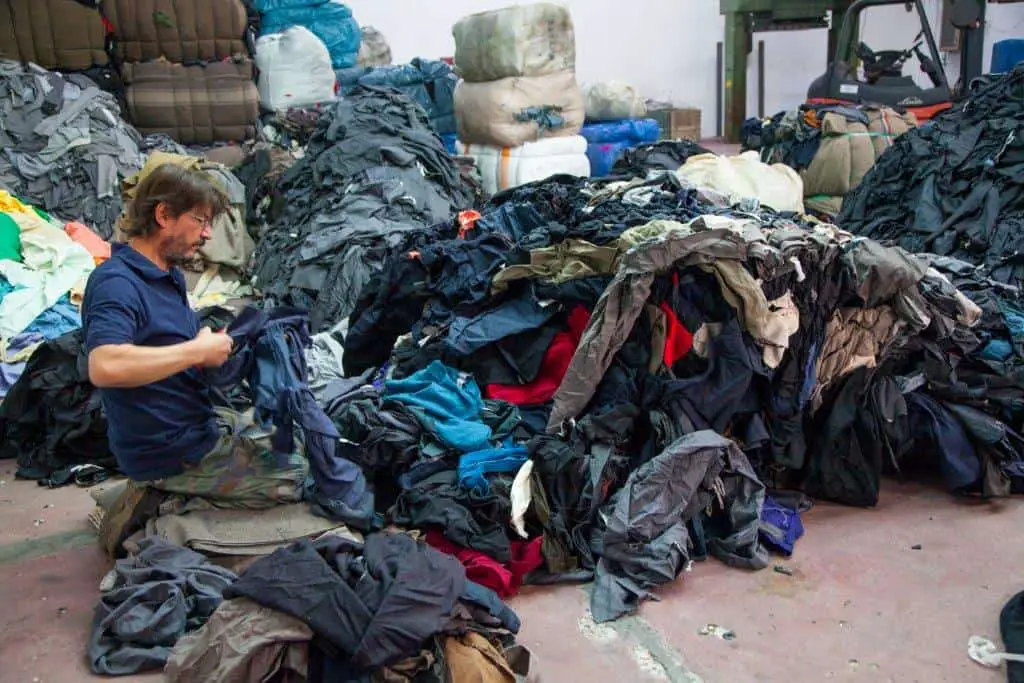
You might think that old suits, sweaters and socks would be destined for the bin. But one Italian company, ASTRI ( Associazione Tessile Riciclato Italiana – or the Italian Association of Recycled Textiles) is giving those old textiles new life, making new fabric from rags. The President of the organisation, Fabrizio Tesi, explains that ASTRI was born to recycle wool and support sustainability: “The textile industry has a circular economy in its DNA, and the time has come to tell the world and its legislators that we must find some new synergies to overcome the problems caused by waste,” he said.
When Mr. Tesi and the current VP of Astri, Sauro Guerri, met as members of the Wool Association (Associazione Laniera) and thoroughly discussed recycling and the regenerative traits of this material, they decided the time to take action to promote a more sustainable textile production.
The wool fibres used in their innovative spinning process can be taken from:
 waste from the combing cycle of sheep
waste from the combing cycle of sheep
- various waste materials of the supply chain both upstream and downstream of the spinning up to the packaging
- rags and unwanted materials
There are so many advantages that come from creating a regenerated fibre: energy saving and the removal of toxic chemicals from landfill, for example. The process works like this: the textile waste is carbonised, cleaned, torn apart and from its remainders, a yarn is produced that will be used to make new clothing. The entire operation uses zero chemicals and promotes fair labour practices, since all manufacturing is carried out by well paid craftsmen who are experts in the field.
 ASTRI isn’t just stopping at creating recycled wool materials; the group is also placing information about recycling textiles in Italian schools to inform the next generation about the importance of circular economies.The main takeaway from this company’s creation is that materials that would once have been landfill can actually become new consumer goods, providing the recycling company with decent profits and those employed by the firm with well-paid, much-needed jobs. Surely, if wool recycling on this scale can be done in Italy, surely other countries should follow.
ASTRI isn’t just stopping at creating recycled wool materials; the group is also placing information about recycling textiles in Italian schools to inform the next generation about the importance of circular economies.The main takeaway from this company’s creation is that materials that would once have been landfill can actually become new consumer goods, providing the recycling company with decent profits and those employed by the firm with well-paid, much-needed jobs. Surely, if wool recycling on this scale can be done in Italy, surely other countries should follow.


 waste from the combing cycle of sheep
waste from the combing cycle of sheep
